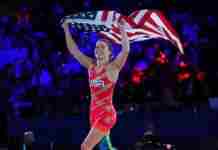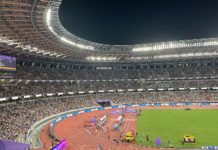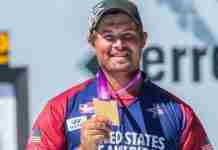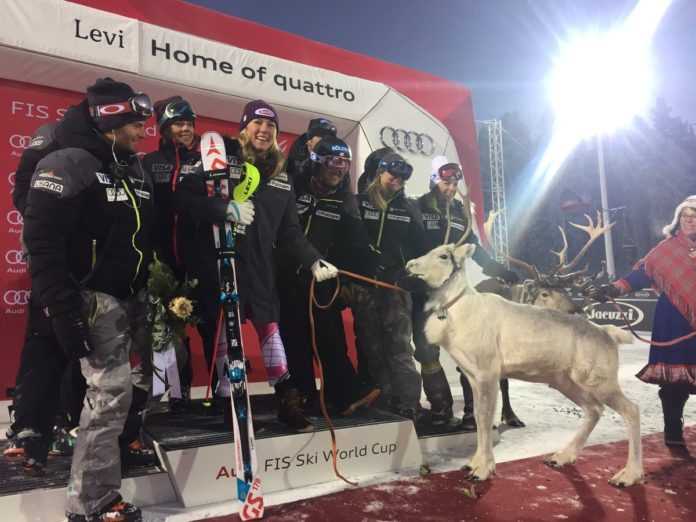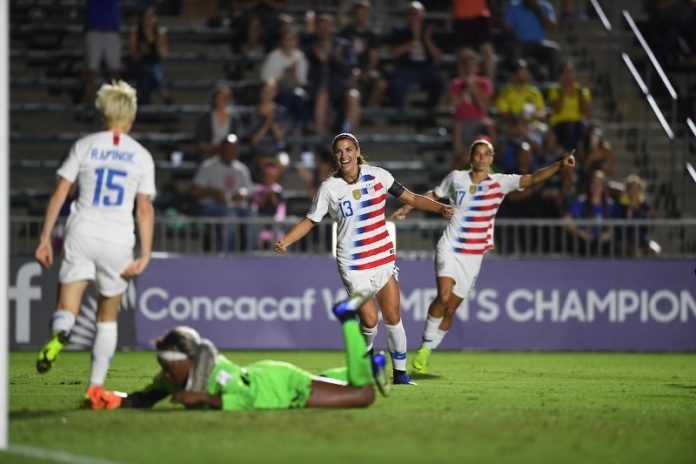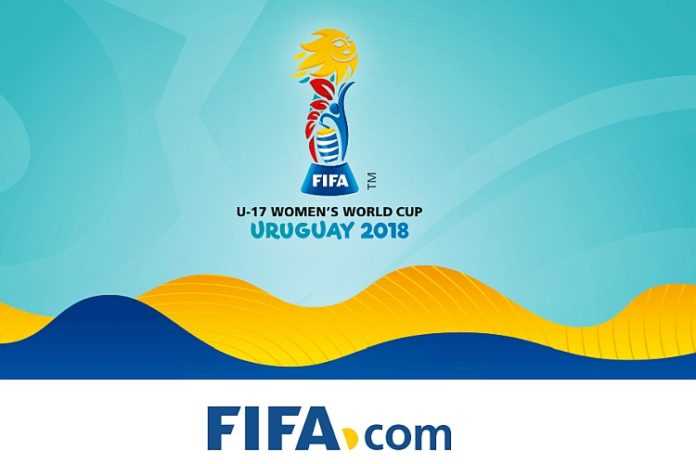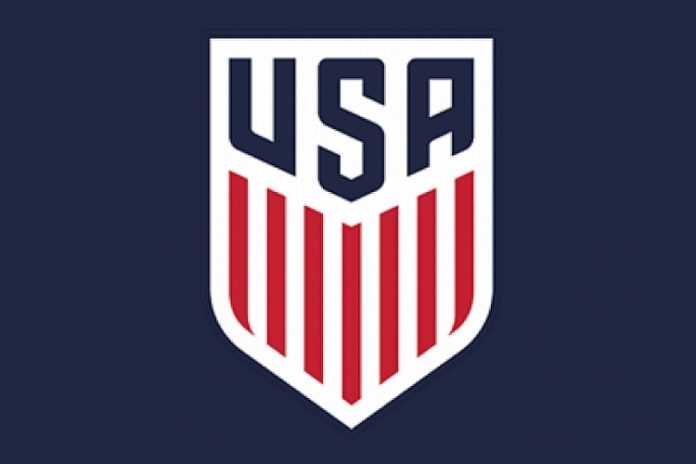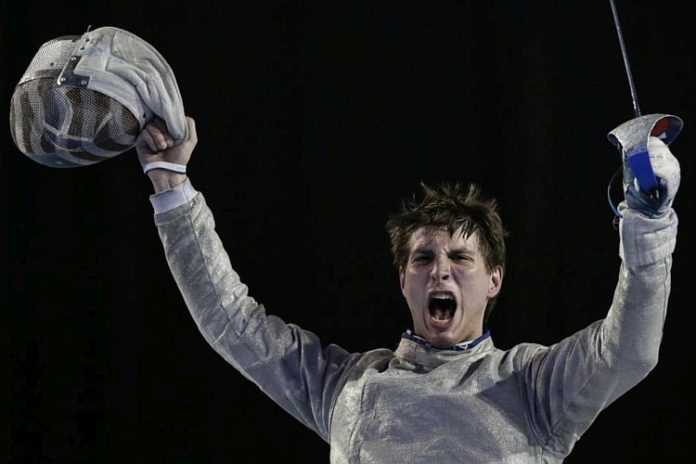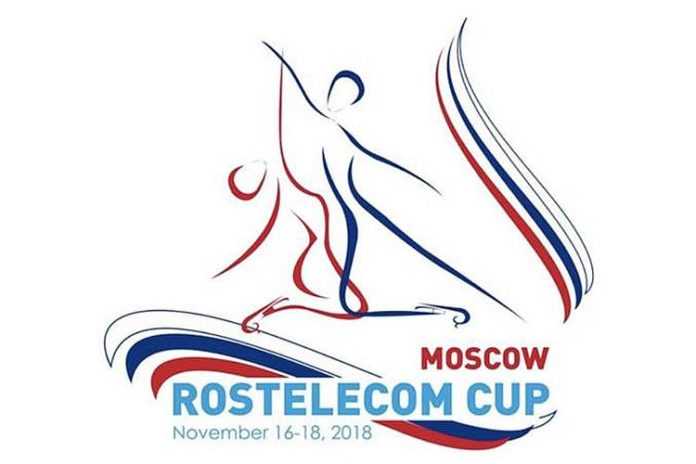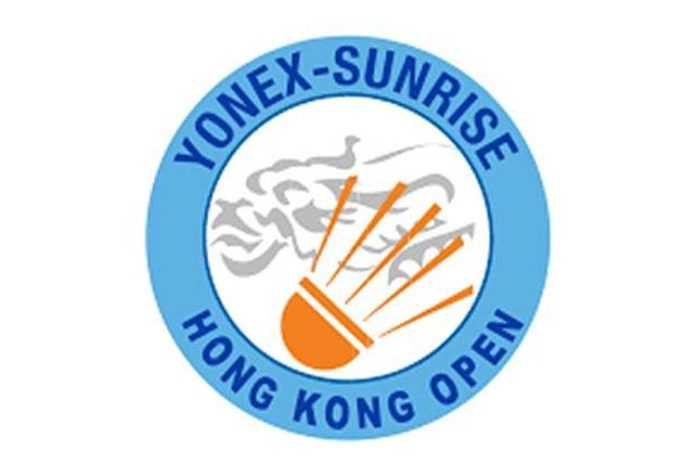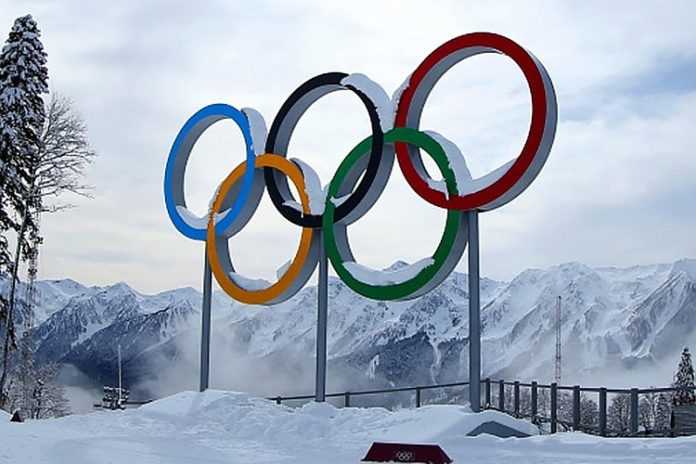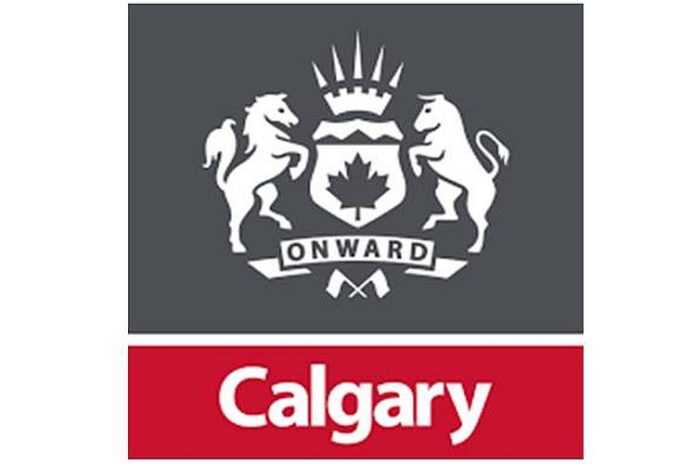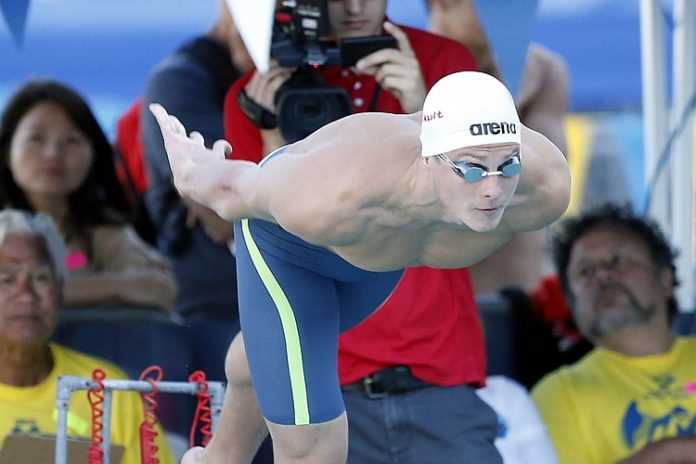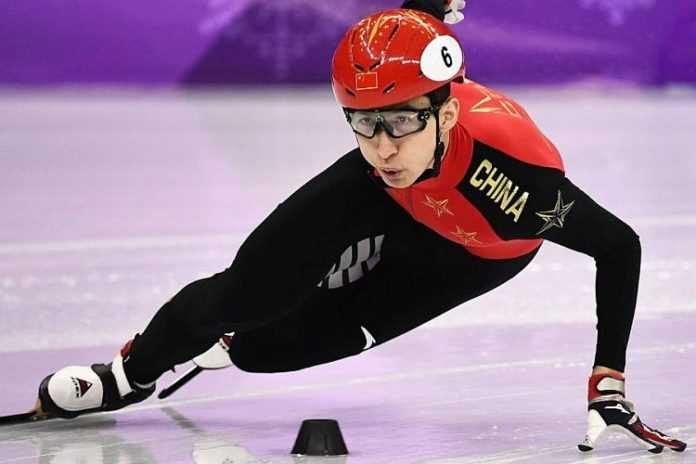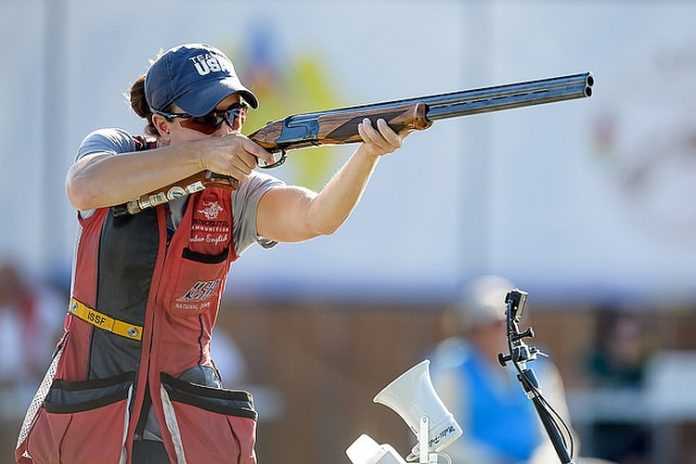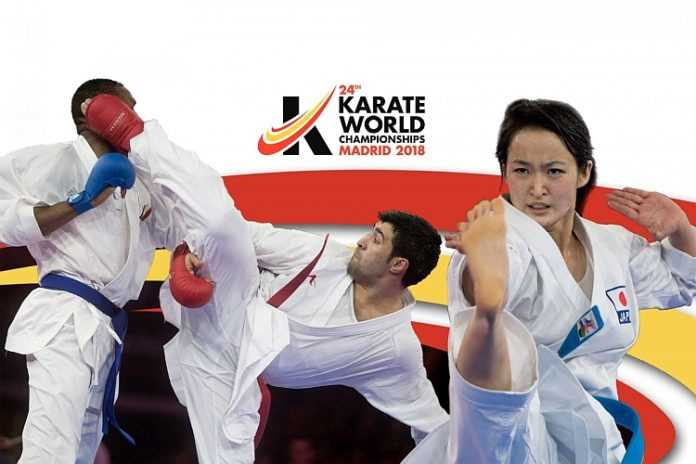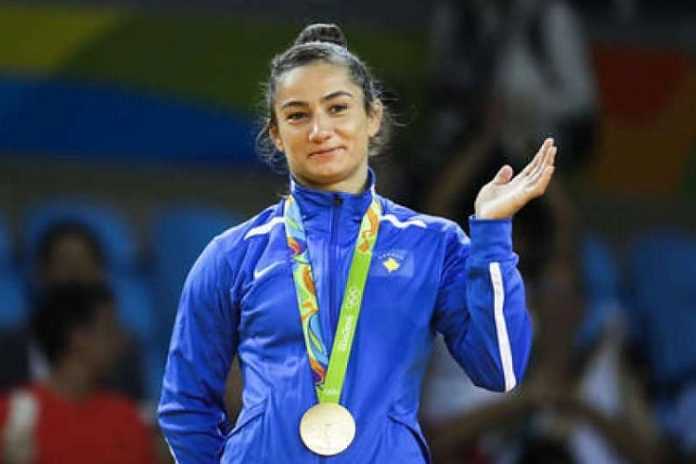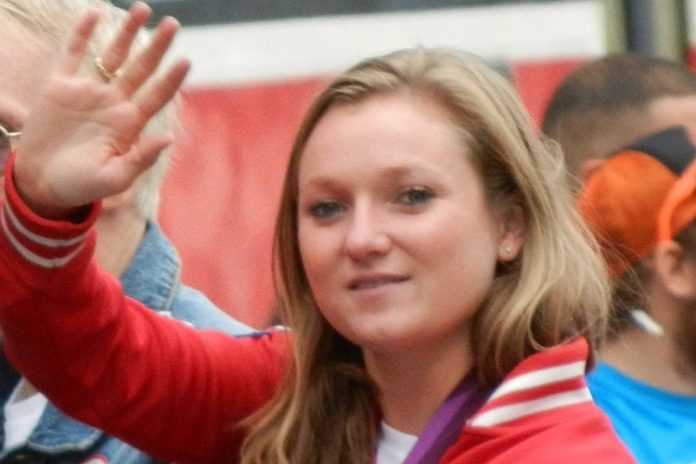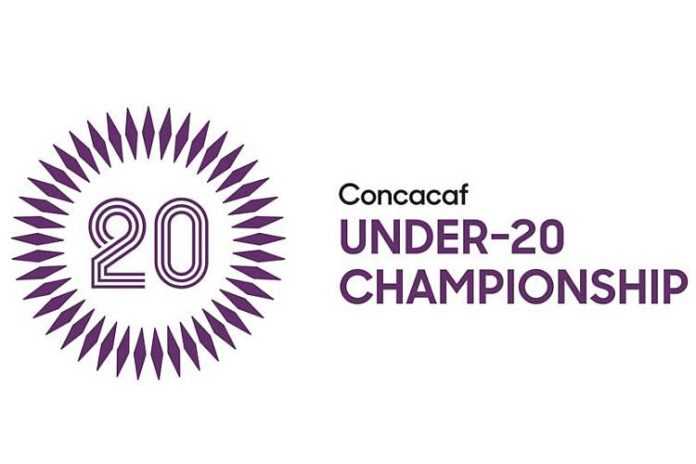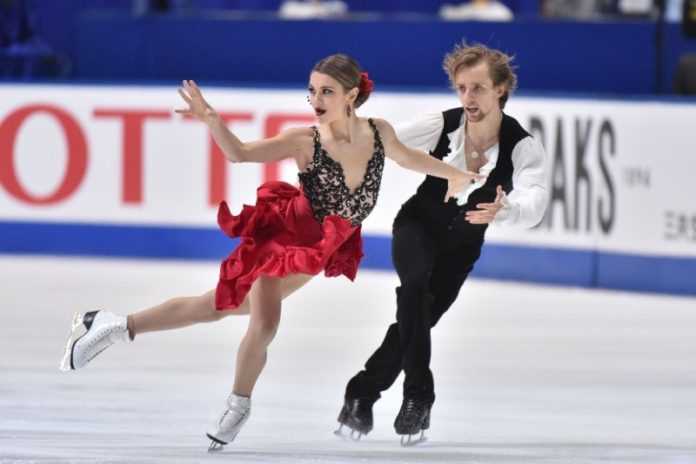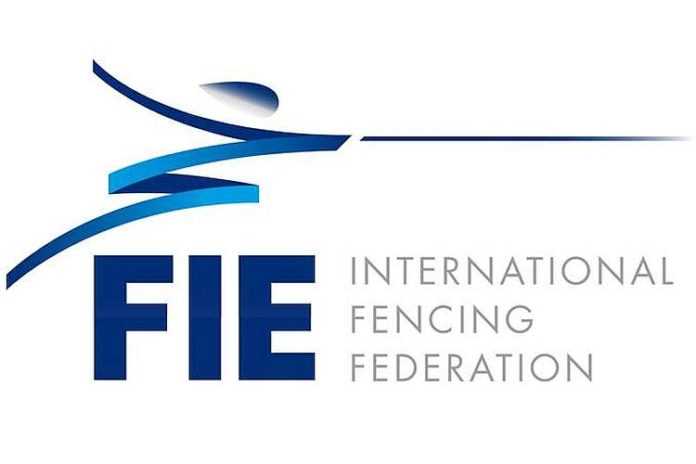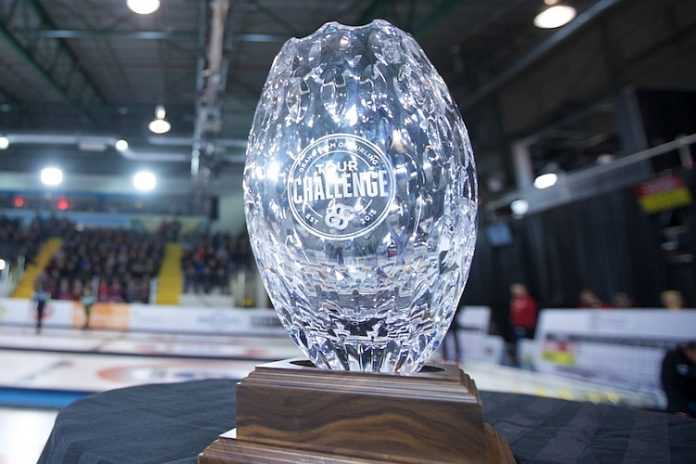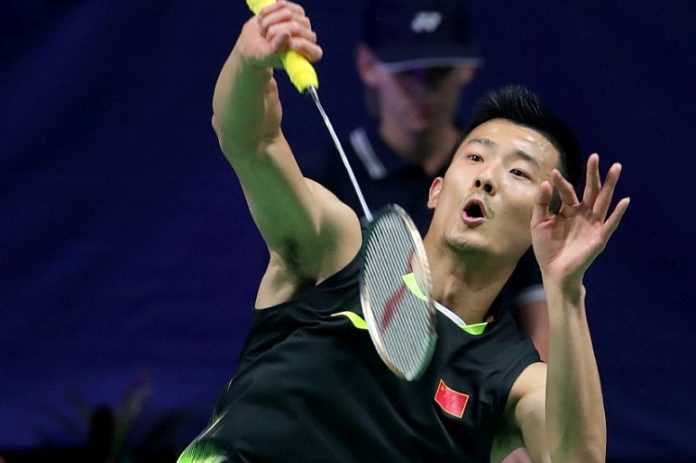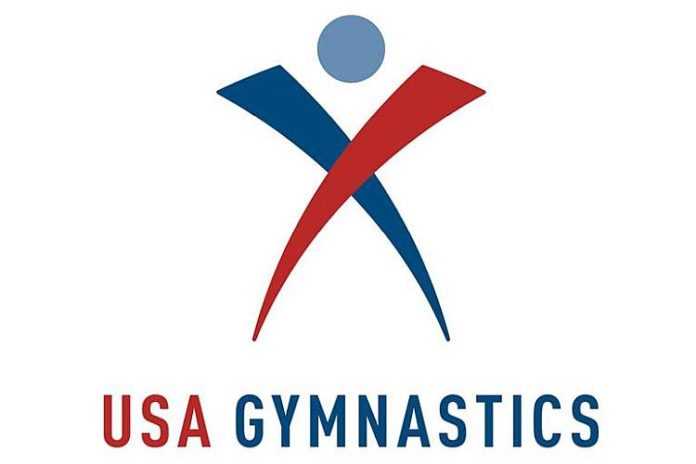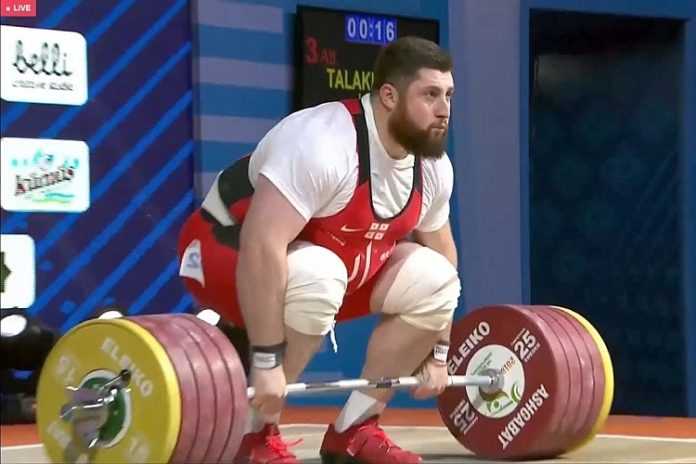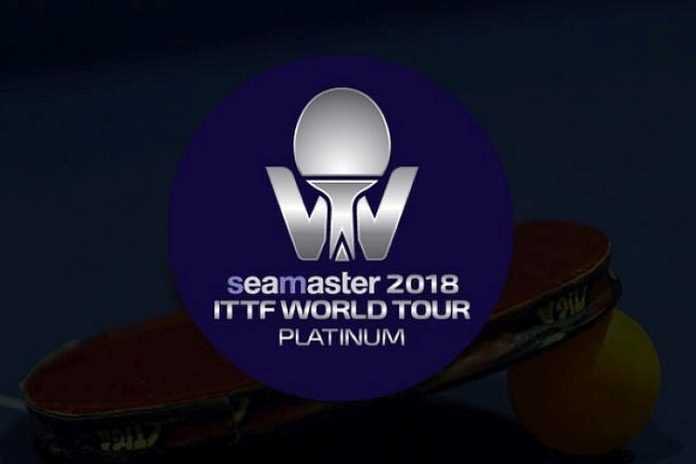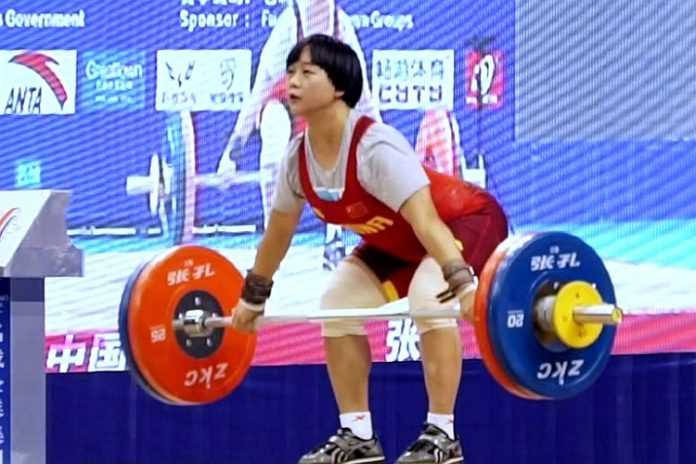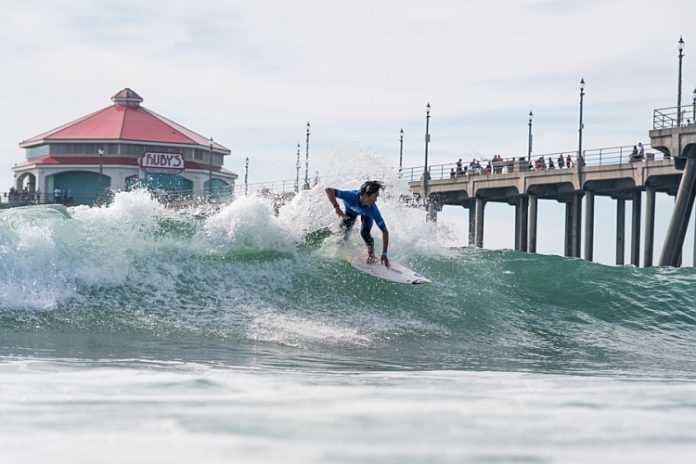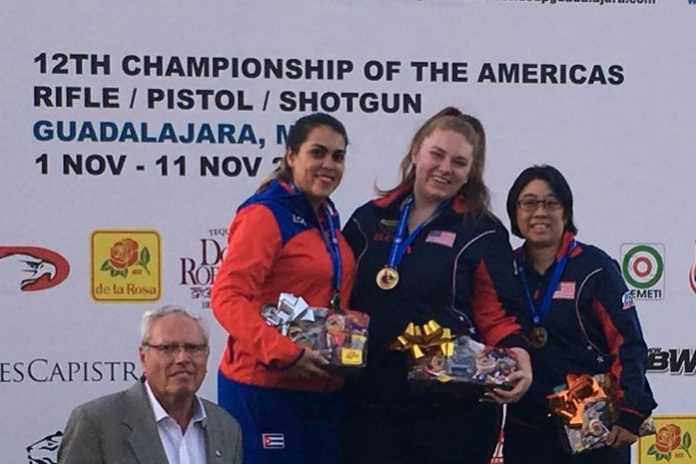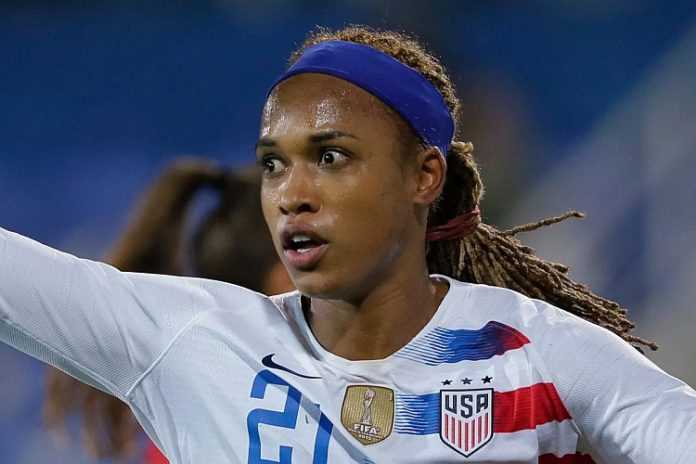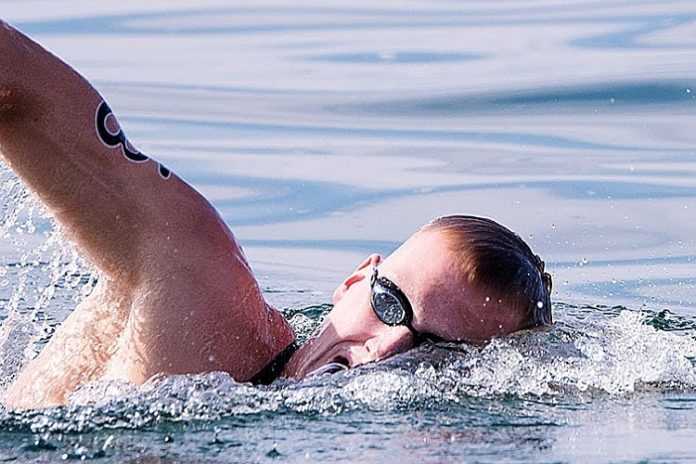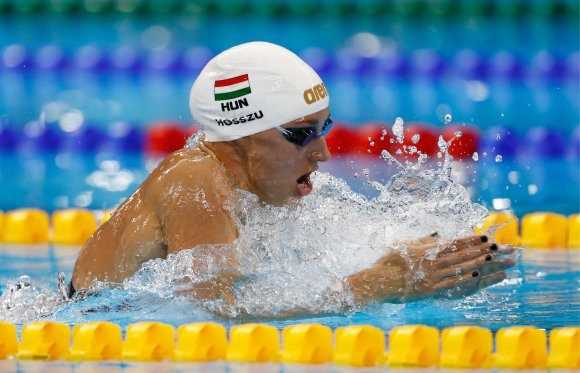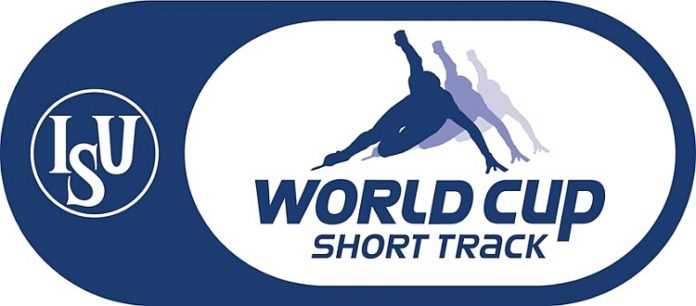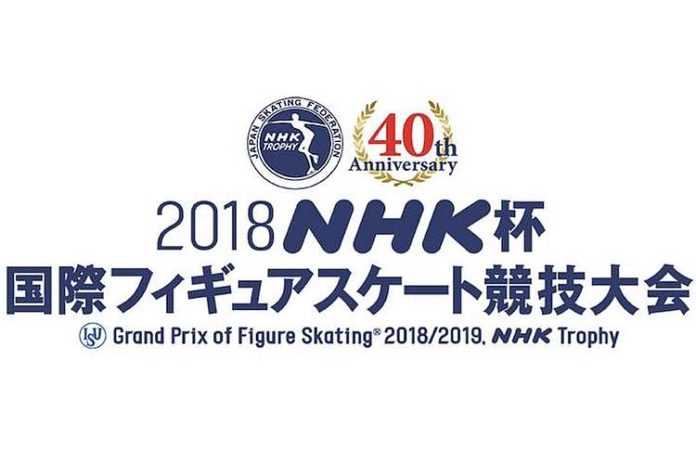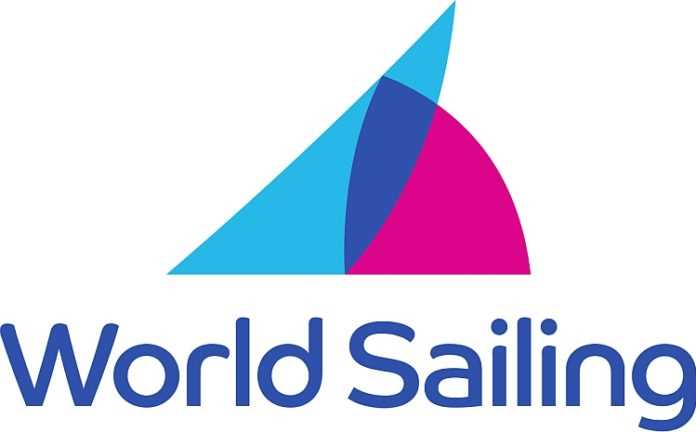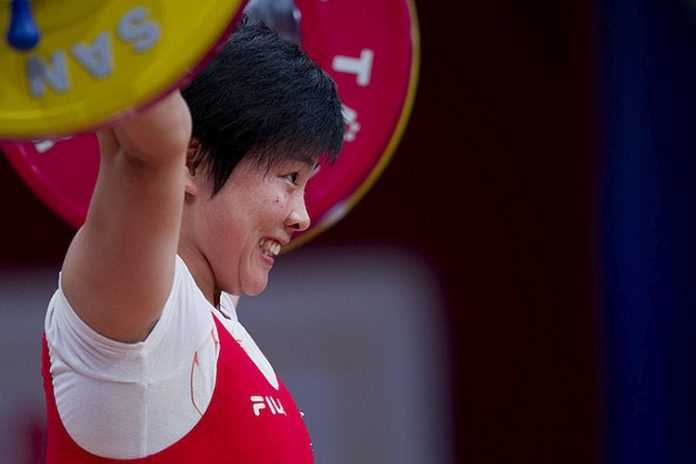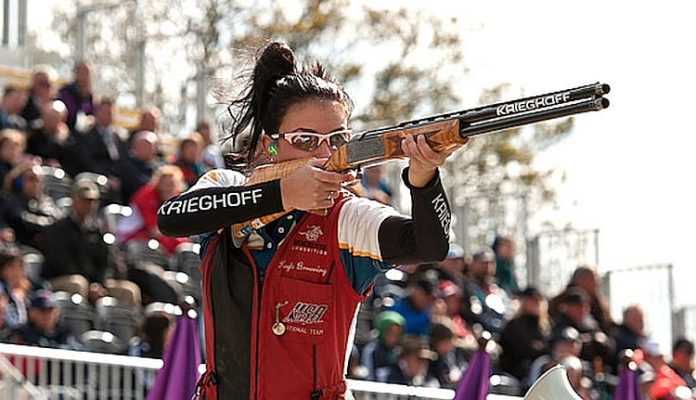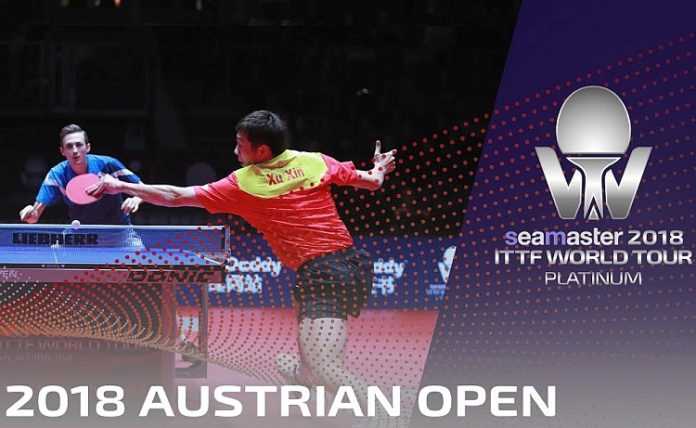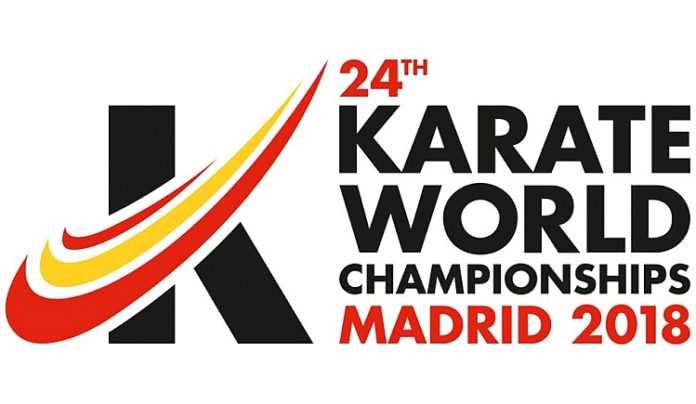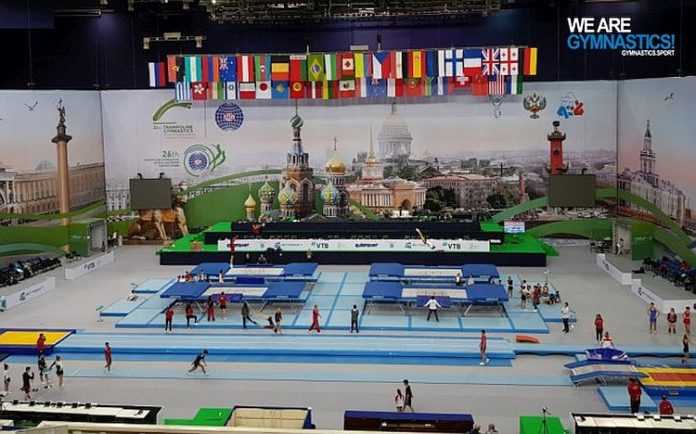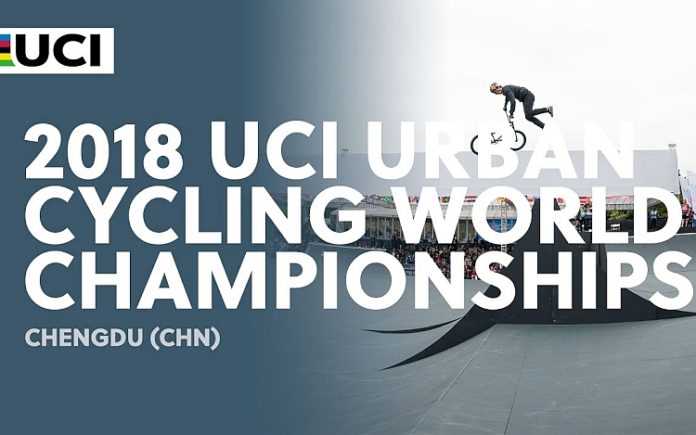There’s no question that the 2018 World Weightlifting Championships in Ashgabat (TKM) will be remembered for China’s dominance and the avalanche of world records thanks to the changes in weight classes from eight to 10 for both men and women. However, there are legacy considerations to this championship which will not be known for some days or weeks.
As to China, its team won seven classes plus eight silvers and four bronzes for a total of 19. The next-highest total was just six from Thailand (3-0-3) and four from North Korea (1-3-0). Traditional powers like Russia, Georgia, Armenia and others were limited to just two lifters because of past doping suspensions and each of those countries won two medals (Russia had two golds).
Even so, China’s six wins came with five of the lifters setting world records, so they are going to be tough to beat. The International Weightlifting Federation may lift the entry total for the limited countries next year … or may not, if it would jeopardize their standing on the Olympic program.
And China’s 19 medals in an all-time record for the most medals ever won by a single country in a men’s and women’s World Championships. China held the prior record of 14 from 1997, the first year of a combined championship (and had 13 in 2009 and 2011). The 1997 record was set with 10 men’s classes (as now) and nine women’s classes (10 now), so they are pretty comparable.
As to the world records, they were set in eight of 10 men’s classes and seven of 10 women’s classes. Listing the lift (Snatch and Clean & Jerk) and total-weight records, there were 30 new men’s records and 39 women’s marks (69 total):
∙ Men’s 55 kg:
Yun Chol Om (PRK): Clean & Jerk: 162 kg
∙ Men’s 61 kg:
Eko Irawan (INA): Clean & Jerk: 174 kg
Irawan: Total: 313 kg
Irawan: Total: 317 kg
∙ Men’s 67 kg:
Lijun Chen (CHN): Total: 332 kg
∙ Men’s 73 kg:
Zhiyong Shi (CHN): Snatch: 161 kg
Shi: Snatch: 164 kg
Shi: Clean & Jerk: 196 kg
Shi: Total: 352 kg
Shi: Total: 360 kg
∙ Men’s 81 kg:
Xiaojun Lyu (CHN): Snatch: 172 kg
Mohamed Ihab Mahmoud (EGY): Snatch: 173 kg
Mahmoud: Total: 369 kg
Mahmoud: Total: 373 kg
Lyu: Total: 374 kg
∙ Men’s 89 kg: none
∙ Men’s 96 kg:
Sohrab Moradi (IRI): Snatch: 186 kg
Tao Tian (CHN): Clean & Jerk: 226 kg
Moradi: Clean & Jerk: 230 kg
Moradi: Total: 409 kg
Moradi: Total: 416 kg
∙ Men’s 102 kg: none
∙ Men’s 109 kg:
Simon Martirosyan (ARM): Clean & Jerk: 240 kg
Martirosyan: Total: 425 kg
Martirosyan: Total: 435 kg
∙ Men’s +109 kg:
Lasha Talakhadze (GEO): Snatch: 212 kg
Talakhadze: Snatch: 217 kg
Talakhadze: Clean & Jerk: 252 kg
Talakhadze: Clean & Jerk: 257 kg
Talakhadze: Total: 462 kg
Talakhadze: Total: 469 kg
Talakhadze: Total: 474 kg
∙ Women’s 49 kg:
Huihua Jiang (CHN): Snatch: 92 kg
Sopita Tanasan (THA): Snatch: 93 kg
Chayuttra Pramongkhol (THA): Clean & Jerk: 120 kg
Zhihui Hou (CHN): Total: 205 kg
Jiang: Total: 206 kg
Hou: Total: 208 kg
Pramongkhol: Total: 209 kg
∙ Women’s 55 kg:
Yajun Li (CHN): Snatch: 100 kg
Sukanya Srisurat (THA): Snatch: 101 kg
Li: Snatch: 102 kg
Srisurat: Snatch: 103 kg
Srisurat: Snatch: 105 kg
Srisurat: Clean & Jerk: 127 kg
Li: Total: 223 kg
Srisurat: Total: 227 kg
Srisurat: Total: 230 kg
Srisurat: Total: 232 kg
∙ Women’s 59 kg:
Hsing-Chun Kuo (TPE): Snatch: 105 kg
Kuo: Clean & Jerk: 132 kg
Guiming Chen (CHN): Clean & Jerk: 133 kg
Kuo: Total: 233 kg
Kuo: Total: 237 kg
∙ Women’s 64 kg:
Wei Deng (CHN): Snatch: 112 kg
Deng: Clean & Jerk: 140 kg
Deng: Total: 247 kg
Deng: Total: 250 kg
Deng: Total: 252 kg
∙ Women’s 71 kg:
Wangli Zhang (CUB): Clean & Jerk: 148 kg
Zhang: Clean & Jerk: 152 kg
Zhang: Total: 263 kg
Zhang: Total: 267 kg
∙ Women’s 76 kg: none
∙ Women’s 81 kg: none
∙ Women’s 87 kg: none
∙ Women’s +87 kg:
Tatiana Kashirina (RUS): Snatch: 145 kg
Kashirina: Clean & Jerk: 178 kg
Kashirina: Clean & Jerk: 182 kg
Supina Meng (CHN): Clean & Jerk: 184 kg
Kashirina: Clean & Jerk: 185 kg
Kashirina: Total: 323 kg
Kashirina: Total: 327 kg
Kashirina: Total: 330 kg
With all of the doping issues that have plagued weightlifting, it’s worthwhile to see if champions from the 2017 or 2015 Worlds have come back to win again. The 2017 Worlds in Anaheim was quite clean in terms of doping, as nine nations were excluded completely. The 2015 Worlds in Houston had 24 positives and almost cost weightlifting its place in the Olympics. Repeaters from these two events in 2018:
∙ 2017: Anaheim
Men 94 kg: Sohrab Moradi (IRI) (Won at 96 kg)
Men 105 kg: Ali Hashemi (IRI) (Won at 102 kg)
Men +105 kg: Lasha Talakhadze (GEO) (Won at +109 kg)
Women 59 kg: Hsing-Chun Kuo (TPE) (Won at 58 kg)
Women 75 kg: Lidia Valentin (ESP) (Won at 81 kg)
∙ 2015: Houston
Men 55 kg: Yun Chol Om (PRK) (Won at 56 kg)
Men 67 kg: Lijun Chen (CHN) (Won at 62 kg)
Men 73 kg: Zhiyong Shi (CHN) (Won at 69 kg)
Men 85 kg: Artem Okulov (RUS) (Won at 89 kg)
Men +105 kg: Lasha Talakhadze (GEO) (Won at +109 kg)
Women 63 kg: Wei Deng (CHN) (Won at 64 kg)
Women +75 kg: Tatiana Kashirina (RUS) (Won at +87 kg)
Among the men, 2018 marked the fourth World Championship for 2012 Olympic winner Om, the third for Chen and Talakhadze and second for Shi, Okulov, Moradi and Hashemi.
For the women, Kashirina won her fifth title at age 27 (2010-13-14-15-18); Deng won her fourth world title, Kuo won her third and Valentin won her second.
However, it is also true that the true impact of the 2018 World Championships will not be known until the doping results come back. If the event was clean (no positives), weightlifting may be cleared – at least provisionally – for the 2024 Games in Paris (FRA). But if there are positives, the IOC Executive Board meeting at the end of this month in Tokyo could mean trouble for this sport. Time will tell.
Summaries:
IWF World Championships
Ashgabat (TKM) ~ 2-11 November 2018
(Full results here)
Men
55 kg: 1. Yun Chol Om (PRK), 282 kg total combined weight; 2. Arli Chontey (KAZ), 258 kg: 3. Mirco Scaratino (ITA), 252 kg; 4. Young-Ho Kim (KOR), 251 kg; 5. Josue Brachi Garcia (ESP), 250 kg; 6. Angel Rusev (BUL), 248 kg; 7. Sergio Massidda (ITA), 236 kg; 8. Muammer Sahin (TUR), 235 kg.
61 kg: 1. Eko Yuli Irawan (INA), 317 kg; 2. Fabin Li (CHN), 310 kg; 3. Fulin Qin (CHN), 308 kg; 4. Francisco Mosqueda (COL), 304 kg; 5. Kim Tuan Thach (VIE), 298 kg; 6. Adkhamjon Ergashev (UZB), 293 kg; 7. Shofa Mishvelidze (GEO), 293 kg; 8. Yoichi Itokazu (JPN), 292 kg.
67 kg: 1. Lijun Chen (CHN), 332 kg; 2. Minhao Huang (CHN), 323 kg; 3. Julio Mayora (VEN), 322 kg; 4. Doston Yokubov (UZB), 319 kg; 5. Oscar Figueroa (COL), 318 kg; 6. Jong Ju Pak (PRK), 315 kg; 7. Goga Chkheidze (GEO), 311 kg; 8. Deni (INA), 310 kg. Also: 18. Alex Lee (USA), 292 kg.
73 kg: 1. Zhiyong Shi (CHN), 360 kg; 2. Jeongsik Won (KOR), 348; 3. Vadzim Likharad (BLR), 343 kg; 4. Chong Song Ri (PRK), 342 kg; 5. Kang Chol O (PRK), 339 kg; 6. Briken Calja (ALB), 339 kg; 7. Karem Ben Hnia (TUN), 337 kg. Also: 10. Clarence Cummings Jr. (USA), 335 kg.
81 kg: 1. Xiaojun Lyu (CHN), 374 kg; 2. Mohamed Ihab Mahmoud (EGY), 373 kg; 3. Dayin Li (CHN), 372 kg; 4. Rejepbay Rejepov (TKM), 363 kg; 5. Petr Asayonak (BLR), 357 kg; 6. Harrison Maurus (USA), 357 kg; 7. Nico Mueller (GER), 348 kg; 8. Safaa Aljumaili (IRQ), 346 kg.
89 kg: 1. Artem Okulov (RUS), 372 kg; 2. Pavel Khadasevich (BLR), 371; 3. Revaz Davitadze (GEO), 371; 4. Brayan Rodallegas COL), 370 kg; 5. Arley Mendez (CHI), 369 kg; 6. Keydomar Vallenilla (VEN), 369 kg; 7. Hakob Mkrtchyan (ARM), 365 kg; 8. Jhor Moreno (COL), 363 kg.
96 kg: 1. Sohrab Moradi (IRI), 416 kg; 2. Tao Tian (CHN), 407 kg; 3. Nicolae Onica (ROU), 391 kg; 4. Yauheni Tsikhantsou (BLR), 390 kg; 5. Fares Elbakh (QAT), 388 kg; 6. Sarat Sumpradit (THA), 384 kg; 7. Boady Santavy (CAN), 383 kg; 8. Anton Pliesnoi (GEO), 379 kg. Also: 20. Jason Bonnick (USA), 353 kg; … 24. Nathan Damron (USA), 343 kg.
102 kg: 1. Ali Hashemi (IRI), 396 kg; 2. Dmytro Chumak (UKR), 393 kg; 3. Reza Beiralvand (IRI), 393 kg; 4. Akbar Djuraev (UZB), 392 kg; 5. Irakli Chkheidze (GEO0, 376 kg; 6. Kostiantyn Reva (UKR), 373 kg; 7. Maksim Sheiko (RUS), 367 kg; 8. Matej Kovac (SVK), 361 kg.
109 kg: 1. Simon Martirosyan (ARM), 435 kg; 2. Zhe Yang (CHN), 419 kg; 3. Arkadiusz Michalski (POL), 403 kg; 4. Saiwan Abbood (IRI), 402 kg; 5. Rodion Bochkov (RUS), 400 kg; 6. Mohammadreza Barari (IRI), 396 kg; 7. Huiyeop Seo (KOR), 395 kg; 8. Vasil Gospodinov (BUL), 393 kg. Also: 12. Wesley Kitts (USA), 390 kg.
+109 kg: 1. Lasha Talakhadze (GEO), 474 kg; 2. Gor Minasyan (ARM), 450 kg; 3. Rustam Djangabaev (UZB), 447 kg; 4. Fernando Saraiva Reis (BRA), 436 kg; 5. Ruslan Albegov (RUS), 432 kg; 6. Mart Seim (EST), 427 kg; 7. Hojamuhammet Toychyyev (TKM), 427 kg; 8. Ali Davoudi (IRI), 424 kg. Also: 12. Caine Wilkes (USA), 400 kg; … 19. Keiser Witte (USA), 377 kg.
Women
45 kg: 1. Thunya Sukcharoen (THA), 186 kg; 2. Yulduz Dzhumbayeva (TKM), 179 kg; 3. Chiraphan Nanthawong (THA), 171 kg; 4. Katherin Echandia Zarate (VEN), 157 kg; 5. Alessandra Pagliaro (ITA), 156 kg; 6. Thi Thu Trang Nguyen (VIE), 151 kg; 7. Daniela Padvova (BUL), 141 kg; only entrants,
49 kg: 1. Chayuttra Pramongkhol (THA), 209 kg; 2. Zhihui Hou (CHN), 208 kg; 3. Huihua Jiang (CHN), 206 kg; 4. Sopita Tanasan (THA), 201 kg; 5. Elena-Ramona Andries (ROU), 188 kg; 6. Beatriz Piron Candelario (DOM), 187 kg; 7. Sri Wahyuni Agustiani (INA), 186 kg; 8. Thi Huyen Vuong (VIE), 183 kg. Also: 12. Alyssa Richey (USA), 178 kg.
55 kg: 1. Sukanya Srisurat (THA), 232 kg; 2. Yajun Li (CHN), 225 kg; 3. Wanqiong Zhang (CHN), 225 kg; 4. Cristina Iovu ((ROU), 220 kg; 5. Zulfiya Chinshanlo (KAZ), 213 kg; 6. Muattar Nabieva (UZB), 212 kg; 7. Nouha Landoulsi (TUN), 211 kg; 8. Kristina Shermatova (TKM), 210 kg. Also: 15. Jourdan Delacruz (USA), 198 kg; … 20. Caitlin Hogan (USA), 191 kg.
59 kg: 1. Hsing-Chun Kuo (TPE), 237 kg; 2. Guiming Chen (CHN), 231 kg; 3. Rebeka Koha (LAT), 227 kg; 4. Pimsiri Sirikaew (THA), 225 kg; 5. Mikiko Sirikaew (THA), 225 kg; 6. Thi Duyen Hoang (VIE), 223 kg; 7. Chineye Fedelis (NGR), 215 kg; 8. Acchedya Jagaddhita (INA), 212 kg. Also: 12. Jessica Lucero (USA), 204 kg.
64 kg: 1. Wei Deng (CHN), 252 kg; 2. Un Sim Rim (PRK), 239 kg; 3. Rattanawan Wamalun (HA), 239 kg; 4. Tzu-Chi LIN (TPE), 235 kg; 5. Loredana-Elena Toma (ROU), 234 kg; 6. Mercedes Perez (COL), 232 kg; 7. Assem Sadykova (KAZ), 226 kg; 8. Karina Goricheva (KAZ), 224 kg. Also: 15. Mattie Sasser (USA), 218 kg; … 22. Hunter Elam (USA), 207 kg.
71 kg: 1. Wangli Zhang (CHN), 267 kg; 2. Sara Ahmed (EGY), 252 kg; 3. Nadezda Likhacheva (KAZ), 242 kg; 4. Anastasiia Romanova (RUS), 240 kg; 5. Mattie Rogers (USA), 238 kg; 6. Meredith Alwine (USA), 233 kg; 7. Mari Sanchez (COL), 228 kg; 8. Jennifer Cantu (MEX), 216 kg.
76 kg: 1. Zhouyu Wang (CHN), 270 kg; 2. Jong Sim Rim (PRK), 269 kg; 3. Neisi Dajomes (ECU), 259 kg; 4. Leidy Solis (COL), 256 kg; 5. Aremi Fuentes (MEX), 247 kg; 6. Gaelle Nayo (FRA), 243 kg; 7. Ayumi Kamiya (JPN), 225 kg; 8. Kristel Ngaelem (CAN), 223 kg.
81 kg: 1. Lidia Valentin (ESP), 249 kg; 2. Darya Naumava (BLR), 245 kg; 3. Tamara Salazar (ECU), 242 kg; 4. Jenny Arthur (USA), 241 kg; 5. Dayana Chirinos (VEN), 231 kg; 6. Iryna Dekha (UKR), 226 kg; 7. Anacarmen Torres Wong (MEX), 226 kg; 8. Alejandra Garza (MEX), 225 kg.
87 kg: 1. Hui Ao (CHN), 268 kg; 2. Um Ju Kim (PRK), 263 kg; 3. Crismery Santana (DOM), 254 kg; 4. Maria Valdes (CHI), 250 kg; 5. Naryury Perez (VEN), 249 kg; 6. Diana Mstieva (RUS), 244 kg; 7. Oliba Nieve Arroyo (ECU), 241 kg; 8. Kseniia Paskhina (RUS), 233 kg.
+87 kg: 1. Tatiana Kashirina (RUS), 330� kg; 2. Suping Meng (CHN), 327 kg; 3. Duangaksorn Chaidee (THA), 296 kg; 4. Kuk Hyang Kim (PRK), 295 kg; 5. Sarah Robles (USA), 290 kg; 6. Chitchanok Pulsabsakul (THA), 280 kg; 7. Huisol Lee (KOR), 272 kg; 8. Anastasiia Lysenko (UKR), 267 kg.














